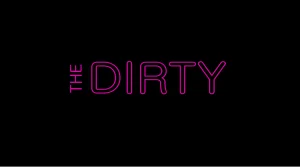
How To Permanently Remove Posts From TheDirty.com
This page has been peer-reviewed, fact-checked, and edited by qualified attorneys to ensure substantive accuracy and coverage.
At one point or another, everyone decides to search their name on the Internet. Unfortunately, the results are not always what you expect and can be devastating – especially when you find out that you have been posted to and defamed on the world’s largest gossip website ‘TheDirty.com’, AKA TheDirty. But do not worry! You have options to fight back and remove false posts from TheDirty.
At Minc Law, we have worked with countless clients to remove damaging and false posts from TheDirty. Most guaranteed content removals we offer for TheDirty start at $2,500 and take anywhere from 7 to 10 business days. We know what it takes to secure seamless and permanent post removals. To remove yourself and false posts from the popular gossip website TheDirty:
- Familiarize yourself with common red flags associated with TheDirty;
- Conduct an in-depth Internet search to locate all damaging and false posts online;
- Contact an experienced Internet defamation attorney to explore your post removal options; and
- If necessary, secure a court order to remove defamation and other negative posts.
Below, we will walk you through:
- What TheDirty.com is,
- Why TheDirty and other popular online shaming websites are legally protected,
- Who you can hold legally responsible for defamatory content posted about you on TheDirty (and how to identify them), and
- How to remove yourself from TheDirty.
Fallen victim to a shaming post on TheDirty.com?
Let us help you protect your image and preserve your good name. Our experienced lawyers will efficiently remove defamatory content and defend your rights.
Contact Minc LawWhat is TheDirty.com?
Founded by Hooman Karamian (aka Nik Richie) in 2007, TheDirty was originally a website to chronicle the nightlife of the “cool kids” in Scottsdale, Arizona. Today, The Dirty is a popular shaming and gossip website for disgruntled individuals, commonly referred to as “TheDirty Army,” to gossip and vent about persons that they feel have wronged them.
Those blasted on TheDirty.com include:
- Celebrities,
- Politicians,
- Professionals,
- Men, and
- Women.
Gossip and shaming websites like The Dirty are designed to enable people to publish just about anything. From rants about cheating spouses, to individuals with alleged sexually transmitted diseases, all the way to sugar babies and fresh celebrity gossip, nothing is off-limits for TheDirty Army. Once someone is posted to TheDirty, the site allows other users to comment on the post.
There is no limit to how many times someone can be posted to this site.
An unfortunate reality about gossip and shaming sites is that they rank highly in Internet search results. Gossip and shaming websites often show up on the first page of Google when searching for an individual’s name. This poses a serious threat to both an individual’s online reputation and livelihood.
Minc Law Reputation Management Tip: To monitor your online reputation and receive real-time alerts any time your name and any specific keywords are mentioned online, we recommend setting up a Google Alerts account. Google Alerts is a free tool that enables you to identify negative information, defamatory comments, and other damaging Internet content as it appears. Google Alerts enables you to nip defamation in the bud before it causes significant damage to your reputation.
How Are TheDirty & Gossip Websites Legal?
The reality of today’s digital landscape is that shaming, cheater, and gossip websites, such as TheDirty, are legal. TheDirty is fueled by user-generated content (UGC) posted by third-parties, rather than their employees. This means that the opinions, statements, and content posted to its platform do not reflect the views of TheDirty and its staff.
User-generated content websites enjoy their legal status and a high degree of immunity from legal liability under a controversial piece of Internet legislation known as The Communications Decency Act (CDA).
Specifically, Section 230 of the Communications Decency Act protects websites from legal liability for content posted to their platform by third-parties. Under Section 230, websites merely act as platform providers, rather than creators of content. This allows them to take a hands-off approach to vetting and removing content. Section 230 reads:
“No provider or user of an interactive computer service shall be treated as the publisher or speaker of any information provided by another information content provider.”
Gossip and shaming sites are only two of the many types of user-generated content websites that enjoy immunity under the CDA. The most common types of user-generated content platforms and websites that you may be most familiar with include Facebook, Twitter, Instagram, Youtube, Reddit, and other social media websites.
Jones v. Dirty World Entertainment Recordings LLC
Lawsuits seeking to hold websites liable for defamatory and damaging content posted to them have in the past failed or been dismissed.
For example, in the 2014 case of Jones v. Dirty World Entertainment Recordings LLC, the plaintiff, Sara Jones, was anonymously attacked by The Dirty Army.
Jones’ picture was posted to TheDirty, with accompanying text accusing her of sexual promiscuity and having infected persons with a sexually transmitted disease. An editorial note was appended and signed “nik” on each post by founder Nik Richie.
Jones filed suit against TheDirty, alleging defamation, libel per se, intentional infliction of emotional distress, and false light under Kentucky tort law. Richie argued that Dirty World was an interactive computer service, and thus, protected from liability for material posted to their site by third parties.
The district court initially denied Richie and Dirty World’s motions to dismiss, concluding that Richie’s editorial comment and signature materially ratified and adopted the content. This ratification and adoption of content ultimately precluded TheDirty from relying on Section 230 immunity.
Several years later, Richie and TheDirty filed a Notice of Appeal and subsequently saw the district court’s initial decision in favor of Jones vacated. The Sixth Circuit found that the district court incorrectly applied an “adoption or ratification test,” and instead applied the material contribution test set forth in Fair Housing Council on San Fernando Valley v. Roommates.com, LLC. The court emphasized:
“Given the role that the CDA plays in an open and robust internet by preventing the speech-chilling threat of the heckler’s veto, we point out that determinations of immunity under the CDA should be resolved at an earlier stage of litigation. See Nemet, 591 F.3d at 254 (“[I]mmunity is an immunity from suit rather than a mere defense to liability [and] is effectively lost if a case is erroneously permitted to go to trial.”).” They continued, “…But, under the CDA, Jones cannot seek her recovery from the online publisher where that publisher did not materially contribute to the tortious content.”
Minc Law Reputation Management Tip: Sometimes removing online defamation from the Internet just is not in the cards for you and your specific situation. Several free and effective reputation management strategies that you can employ to suppress Internet defamation, personal information, and other damaging online content include: (1) Utilizing good Search Engine Optimization (SEO) strategies to create positive content, (2) Interlinking between social media accounts and online profiles, and (3) Generating or responding to reviews (if you are a business owner).
If I Cannot Sue TheDirty, Who Can Be Held Responsible?
Although The Dirty cannot generally be held liable for libel and other damaging content posted to its platform, that does not mean you have no option for legal recourse.
If you have been posted to TheDirty, you can sue the author who created and submitted the defamatory post(s) to TheDirty.com.
To successfully bring a defamation lawsuit, a plaintiff will typically have to prove the following four elements:
- The statement(s) in question are false;
- The statements are “of and concerning” the plaintiff (the plaintiff may be reasonably identified);
- There was publication to a third-party; and
- The plaintiff suffered damages as a result of the false statements.
How Can I Find Out Who Posted Me to TheDirty?
At times, a quick and straightforward post removal from TheDirty.com is not enough. In many situations, it is critical to also identify who posted the content in the first place.
Finding out who published a post to TheDirty and subsequently confronting them can often be the only way to ensure that they do not do so again. It is also necessary if you want to take legal action against the poster and hold them accountable for monetary damages.
Regardless of the reasoning for wanting to identify who is behind a defamatory attack on TheDirty, it is very possible to successfully identify an anonymous poster.
How to Identify an Anonymous Poster on TheDirty
Oftentimes, posters are anonymous and require the help of experienced content removal lawyers to identify them. Below is a breakdown of the steps it takes to identify an anonymous poster on TheDirty.com:
- Work with an experienced Internet attorney to file a John Doe Lawsuit;
- Issue a subpoena to TheDirty.com for a poster’s information (IP address, email, phone, etc.);
- Once a response is received from TheDirty, analyze the data to see if it is enough to identify the poster or whether a second subpoena to an Internet Service provider (ISP) is necessary to ID them;
- If it is necessary to issue a subpoena to an ISP, file a motion to obtain court authorization to do so;
- Once court authorization is given, issue a subpoena to the ISP provider;
- (Hopefully) once you receive a response from the ISP, you will be given the name of the account holder. This may be the author of “your post.”
After the successful identification of an anonymous poster, you may then name them as the defendant should you choose to file a defamation lawsuit.
Video: Is a Defamation Lawsuit Right for You? The Steps to File a Defamation Lawsuit

Our firm has a high success rate in identifying anonymous defendants. When we have multiple data points on an anonymous defendant to work with from recent activity, this typically leads to successful identification in 90% of cases. But this process is not guaranteed and we are not always able to identify an anonymous poster. In some instances, ISP data may be stale or no longer available, or the poster may have used a VPN or public WiFi.
Other additional factors can also make it more difficult to positively ID someone with direct evidence. But even in situations where an anonymous poster has employed anonymizing technology, our firm has an arsenal of advanced tactics and tools to identify them.
How to Remove Posts From TheDirty
Familiarize Yourself With Common Red Flags of TheDirty
There are certain red flags that every person posted to TheDirty should keep an eye out for, as they can ultimately affect the difficulty of removing posts. These include:
- Whether the subject of the post(s) is a celebrity;
- Whether the subject of the post(s) previously communicated with TheDirty.com; and
- The age and popularity of the post(s).
Red Flag #1: Celebrity Status
The number one red flag to keep an eye out for is whether the subject of the post(s) is considered a celebrity. For persons who are classified as celebrities, post removals from TheDirty can be more challenging than removals for non-public figures.
It is not impossible for a celebrity to remove posts and defamatory statements from TheDirty. However, the process is often more challenging and costly. In most cases involving celebrities posted to The Dirty, the cost to remove a post(s) is considerably higher and more time will be required to secure its removal.
In some cases, a court order may be required to remove a defamatory post or other damaging content. This requires litigation and working with an experienced Internet attorney.
Red Flag #2: Prior Communications
Another red flag to take into consideration when attempting to remove posts from TheDirty is whether you, the subject of the post, had any past interactions with the website owner or staff. It is not uncommon for gossip websites to “blacklist” people who threaten or harass them, instead of submitting a legitimate removal request via their reporting channels.
Blacklisted persons simply refer to people who have had negative interactions with TheDirty and its staff in the past. Common interactions that TheDirty may deem negative include sending a cease and desist letter or emails threatening a lawsuit and other legal action.
Blacklisted individuals will most likely incur inflated removal costs or need a court order to remove posts. When contemplating a post removal from gossip and shaming sites like TheDirty, it is best to consult an experienced Internet attorney before engaging with the website to protect against this risk.
Red Flag #3: Age & Popularity of the Post
The last red flag to look for is within the damaging post itself. How old is the post? How many comments are on the post? If a post about you has more than 75 comments, you may be considered a “dirty celebrity,” which puts you in the same removal category as a traditional celebrity.
Being a “dirty celebrity” ultimately results in a higher post removal cost or the need for a court order to remove content.
Identify All Damaging Content Posted Online
A key issue that clients encounter when removing damaging posts from TheDirty is that the posts are often copied (or “scraped”) to other shaming sites. A scraping website copies original posts, comments, and images from other websites and then publishes it on their website as if it was their own content.
In most instances, scraping websites will backdate a scraped post so that it appears like it was published on the same date as the original, even though it was not.
It is not clear why some negative posts are scraped and others are not. It is also not clear why some posts on TheDirty are copied to dozens of additional websites, while others are only published to a few. TheDirty is not responsible for scraping content and does not promote it.
Practically speaking, there is always a risk that anything posted online can be copied and scraped at any time.
Regardless of why or how scraping happens, posts that are scraped to additional websites cause a much bigger problem for removal. Simply put, scraped posts mean that there is additional content to remove from the Internet and additional work required to comprehensively “clean up” what Internet search results say about you.
How to Identify Original vs. Scraped Posts
If a damaging post about you appears on multiple shaming websites, it is important to identify whether the poster manually posted the content on individual websites or whether the content was scraped by other shaming sites.
Identifying whether a post was manually posted or scraped to a shaming site is critical to understand:
- Whether there is a future risk that someone will post the content again; and
- Whether you should file a lawsuit instead of only pursuing a content removal.
When a post is accompanied by a photograph, that is often an indication it is an original post. And, when the photograph contains a watermark, that is usually a clear giveaway that it is an original post. To avoid appearing as if a post was scraped, sometimes a shaming site will only copy the text of the post, instead of copying both the text and photo from the original posting.
How to Find Content Scraped From TheDirty
Follow the following six search tips to identify whether a post from TheDirty has been scraped to another website:
- Google your full name, including middle names, nicknames, maiden names, and previous names. For example, if your current surname is Mary Jones and your maiden name was Sutton, conduct a search of both of those names separately and together.
- Use titles and suffixes ex. Dr., Esq., Sr., Jr., III, IV, etc.
- Search your location in conjunction with your full name i.e. John Jacob Schmidt + Los Angeles CA.
- Think like a defamer and add descriptive keywords to your name when searching. (cheater, liar, homewrecker, deadbeat, expose, loser, etc…).
- Add quotations around your name and other terms when searching to make sure the results are about you and weed out false positives.
- Utilize different search engines such as Bing, Yahoo!, Baidu, DuckDuckGo, and other alternatives to Google.
It is Critical to Remove All Damaging Content From the Internet
When posted on The Dirty, it is critical to conduct an in-depth search of your name on multiple Internet search engines with varying keywords. This enables you to identify whether a similar or scraped post is live elsewhere on the Internet. Your ultimate goal should be to remove all damaging and defamatory posts associated with your name and prevent their spread to other shaming sites.
If you only remove a handful of negative posts and leave some still “live,” then there is a higher likelihood that they will continue to spread, multiply, and cause more damage to your reputation.
It is also important to remember that if you only remove the first post that appears in Internet search results and do not remove other posts that rank further back, there is no guarantee that other negative posts will remain further back in search results. Oftentimes, once a prominent post is removed from Internet search results, similar posts located further back can “jump” to the front of search results and replace the one that was taken down.
Google’s search engine algorithm is constantly changing and extremely difficult to predict. Google is always looking for search items and pages to keep query results relevant. Therefore, posts that may have previously been hidden in search results or had not yet been crawled by Google may not rise to the forefront until a similar item (with near-identical content) has been deindexed or removed.
Work With an Internet Attorney to Secure a Guaranteed Content Removal From TheDirty
The good news is that removing a post or string of posts from TheDirty is possible. Some Internet defamation attorneys and law firms have built up a rapport with specific websites to offer guaranteed content removals from them.
So, what is a guaranteed removal and how will it help you? Guaranteed removals are offered for websites that lawyers and law firms have extensive experience working with in the past. Should they fail to do so, they then typically refund you for any links and defamatory material that they could not remove. Guaranteed removals generally have a set price that is influenced by three key factors:
- The number of damaging and false posts that you want removed;
- The website’s post removal policy; and
- Whether the help of a lawyer is needed.
With most guaranteed content removals, an online defamation attorney can confidently remove you and any negative posts from shaming websites like TheDirty.
To learn more about our Guaranteed Content Removal Services, we recommend checking out the video below. In the video, we go over what Guaranteed Removals are, what types of websites we can guarantee removal from, typical costs involved, and other frequently asked questions.
Video: What Are Minc Law’s Guaranteed Removal Services?

Costs of a Guaranteed Content Removal From TheDirty
Unlike hourly litigation and non-litigation matters where clients may not know how much it will cost to resolve a legal matter upfront, guaranteed removals are excellent for staying within a budget and controlling overall costs.
At Minc Law, most guaranteed removals that we offer from TheDirty start at $2,500.00 and usually take around 7-10 business days. Make sure to check out our article detailing how much guaranteed removals cost to better understand the factors that may affect your removal.
Removals From TheDirty Come With a One-Year Warranty
Guaranteed removals from TheDirty.com come with a one-year warranty that is extended from site administrators and their attorneys.
This one-year warranty ensures that if you remove all posts associated with your name on TheDirty, then they will remove any additional post(s) associated with the same name posted to their site for one calendar year after removal.
Minc Law can help facilitate removal if there is a repost of damaging content.
Will the Poster Be Notified I Am Trying to Remove the Negative Content?
A very common question clients ask us is whether the poster will be notified that the post is being removed. The answer is no. The poster will not be notified that the damaging post is being removed.
Post removals from the TheDirty are confidential and conducted between our law firm and the TheDirty’s representatives.
The only way the poster will know whether a post is removed is if they browse the site. Generally, reposts are rare. But from time to time we have seen reposts occur.
Secure a Court Order
One big misconception about the removal of offensive content and posts from TheDirty is that you need a court order. Court ordered content removals from TheDirty are only necessary in rare cases. A court order to remove content from TheDirty is typically reserved for celebrities and blacklisted individuals.
There are pros and cons to obtaining a court order to remove or de-index posts from TheDirty, all of which should be thoroughly weighed.
Pros:
- Court orders can often get a post removed and/or de-indexed;
- Court orders can protect against copied posts on other websites;
- Court orders can lead to the identification of the poster and prevent additional damaging posts in the future;
- Court orders can lead to an award of monetary damages for the harm caused to you by the post.
Cons:
- Court orders can be very costly (see article: How Much Does a Defamation Lawsuit Cost?);
- Court orders do not guarantee removal. TheDirty and Internet search engines may refuse to enforce the court order.
Minc Law Can Remove Defamatory Posts From TheDirty
At Minc Law, we help individuals from all over the world protect their reputations by removing damaging posts from TheDirty. We at Minc Law have extensive experience working with TheDirty to remove posts and offer guaranteed content removals from TheDirty.
If you have been posted to TheDirty or another shaming website, contact us to receive a guaranteed post removal quote.
To schedule your free, no-obligation consultation with an intake specialist, call us at (216) 373-7706, contact a Chat representative, or fill out our contact form online, and we will get back to you within 24 to 48 business hours.
★★★★★
“Melanie was absolutely fantastic. Six years ago, someone wrote something terrible about me online and it followed me wherever I went! Jobs, relationships, etc. I finally got in touch with Minc, and Melanie was so courteous, professional, and diligent about getting the post removed. Thank God for Minc Law because I’m getting married next year, and I finally feel comfortable using my full name on my wedding announcements! Thank you, Minc!!!”
HCP, September 28, 2020






